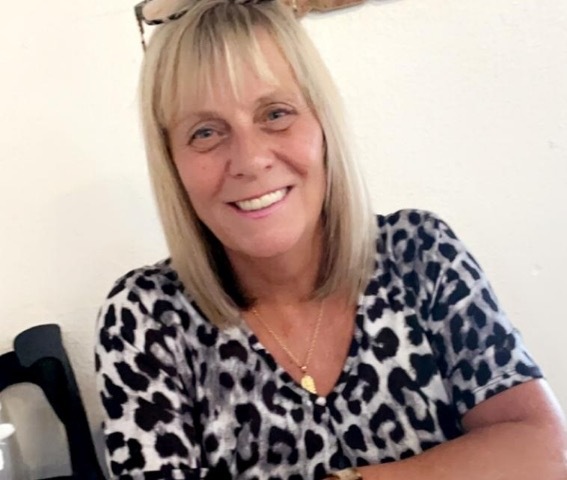As she sat down to Christmas dinner Sandra Holmes – who set up an addiction family support group due to her struggle to access help for her daughter – made sure her phone was within reach.
Holmes receives daily calls from people in addiction who are in crisis – or their family members – when services are closed and they don’t know where to turn. Her number is a lifeline to many. But help, she says, must be more readily available to all.
So last year Holmes, whose daughter is in drug recovery, set-up Families Campaigning for Change, a group of parents whose children have struggled – or are still struggling – with addiction. Now the group is calling on the Scottish Government to fund a national helpline for people in crisis and provide out-of-hours-services that it insists will save lives.
Annual figures published last July showed there were a record 1,339 drug deaths in 2020 – an increase of 75 from the 1,264 recorded the previous year.

The latest quarterly statistics for 2021 show a decrease of 4 per cent on the number of deaths for the same period in 2020. But researchers note “there continues to be an upward trend over the period for which data is available”.
When people are in crisis they need immediate help,” said Holmes. “At the moment a way of ensuring that 24/7 doesn’t really exist and it means volunteers picking up the pieces.”
She set up the campaign group in February last year, inspired by the experiences of a mother she was supporting. The woman’s son, who was in crisis due to addiction, tried to take his own life and later overdosed.
He was rushed to hospital late on a Friday night and discharged at 4am the following morning. “He had no naloxone , no helpline number, nowhere to turn,” said Holmes.
“This mum had no choice but to take him back in. It was my husband who ended up driving there with naloxone for them because I was shielding at the time. And that was the final straw – when I said something just has to change.
“Addiction services work Monday to Friday, 9 to 5pm. But we need crisis care – services that will see people seven days a week, 24 hours a day, just like any other health service would.”
I listen to the Scottish Government saying they are taking action, that there’s new money but I feel it’s not going to the right places because little has changed.
Nancy Davies. mother
Last week Holmes took a call from a mother whose son had failed to pick-up his methadone prescription before the chemist closed on Hogmanay. He had still not been able to access his prescription on 4 January because both the chemist and addiction services remained closed.
In recent months she has supported families told they will have to wait 12 weeks for an appointment with drug services, involved her own daughter – now in recovery – in helping people find and attend AA meetings, and sourced out-of-hours needle exchanges.
“And so it goes day after day after day,” she added. “We have spoken to Angela Constance and we told her we had major concerns about this Christmas. She promised that would not be the case next Christmas. I believe she is sincere, and that she is listening to us.
“But this is not just about Christmas – it’s about services 52 weeks of the year and a helpline that connects people to them. We are not about attributing political blame. But we want to see this fixed.”
Nancy Davies, from Thurso, knows from bitter experience how difficult it can be to get help at the point of crisis. Her 37-year-old son has struggled with addiction for more than 20 years.
Davies, who previously lived in Inverness, is beyond frustrated at the lack of crisis support on offer over the years. “Had the help that we really needed been there at the time we needed it, I don’t think my son would still be in this state,” she said, recalling an incident when her son was in his twenties.
Davies returned from work to find he had “taken something” and was crawling around on hands and knees, the house in chaos and holes punched in the walls.
“I phoned the surgery because he clearly needed urgent help but they said they couldn’t come without police back-up because he was being violent,” she said.
“He started kicking off again and so I called the police, who said they had been called by the surgery and would come over. Eventually they arrived with the GP and they arrested him. Four officers took him out of the house. I was pleading with the GP that he needed medical help, that he needed sectioned .
“The GP patted my shoulder and told me that if I needed anything else I could make an appointment in the morning. There was no help for my son and he was taken away by police.”
“I listen to the Scottish Government saying they are taking action, that there’s new money but I feel it’s not going to the right places because little has changed.”
It is very difficult to find out of hours support information for people who use substances. We advise them to contact NHS24 or attend A&E however people do contact us crying out for help when they have already tried these avenues and have received no immediate support.
Suzanne Gallagher, Scottish Families Affected by Alcohol and Drugs
Suzanne Gallagher, helpdesk development officer at Scottish Families Affected by Alcohol and Drugs said the charity – set up to support families of those struggling with addiction – had seen a “year on year” increase in people who use substances contacting them for support.
In 2020-21, 62 per cent of calls on weekends or holidays were from those using substances and 32 percent of calls between 5pm, when services close, and 11pm when the charity’s helpline does.
As many services were closed last year due to the pandemic 35 per cent of the calls made 9-5 during weekdays came from those looking for help with their own drug or alcohol use.
“It is very difficult to find out of hours support information for people who use substances,” said Gallagher. “We advise them to contact NHS24 or attend A&E however people do contact us crying out for help when they have already tried these avenues and have received no immediate support, or they have attended A&E and been discharged with no follow up support and struggle the next day.
“When we are looking at support options for people we struggle to get them out of hours support in areas where there is not a third sector organisation to pick up and support people at times of crisis.”
One solution would be an out-of-hours “place of safety”, added Gallagher, where people could be assessed and get support.
David Liddell, chief executive of Scottish Drugs Forum, supported the call and said there was a need for both support in crisis and better continuity of care and support.
“We need a system that is responsive to the needs of people who find themselves in medical or other crises,” he said. “We have to offer people alternatives to drug consumption, as a means of coping, when they are faced with a crisis.
“It is simply unacceptable that people are discharged from the care of professionals into high risk circumstances.”
A Scottish Government spokesperson said: “We are determined to make a positive change, through the delivery of the national mission, to all those affected by drug use, backed with an additional investment of £250m over the lifetime of this Parliament.
“We are committed to implementing approaches that can help save lives and improve the lives of those impacted by drugs. We are therefore open to any interventions that have a potential to help keep people safe and to connect them with the support they need to help them improve their lives.
“We will also continue to listen to those with lived and living experience on what sort of services are needed.”
Do you have experience of addiction services? Tell us your story – contact@theferret.scot
Photo credit: iStock/Chee Siong Teh














